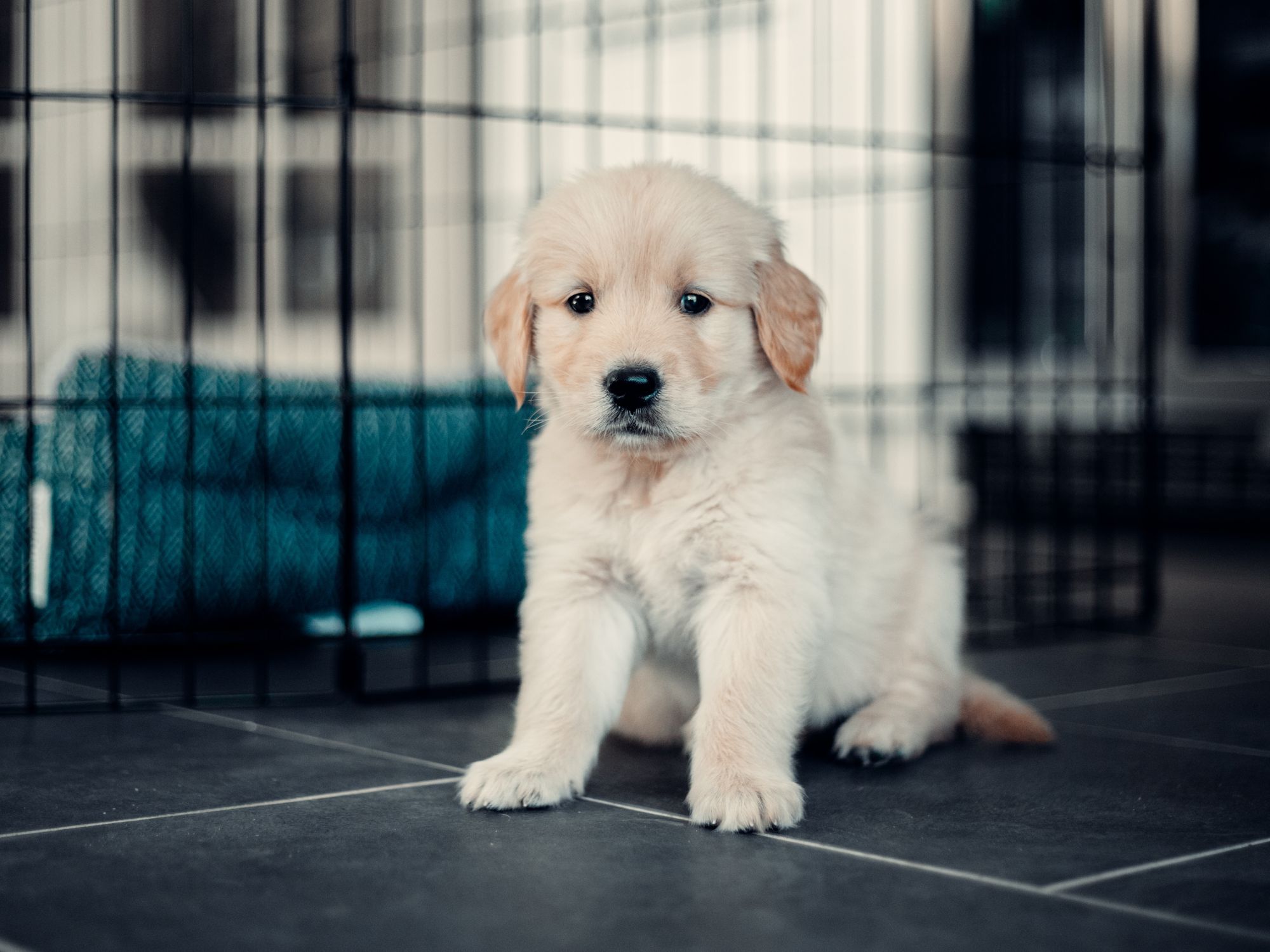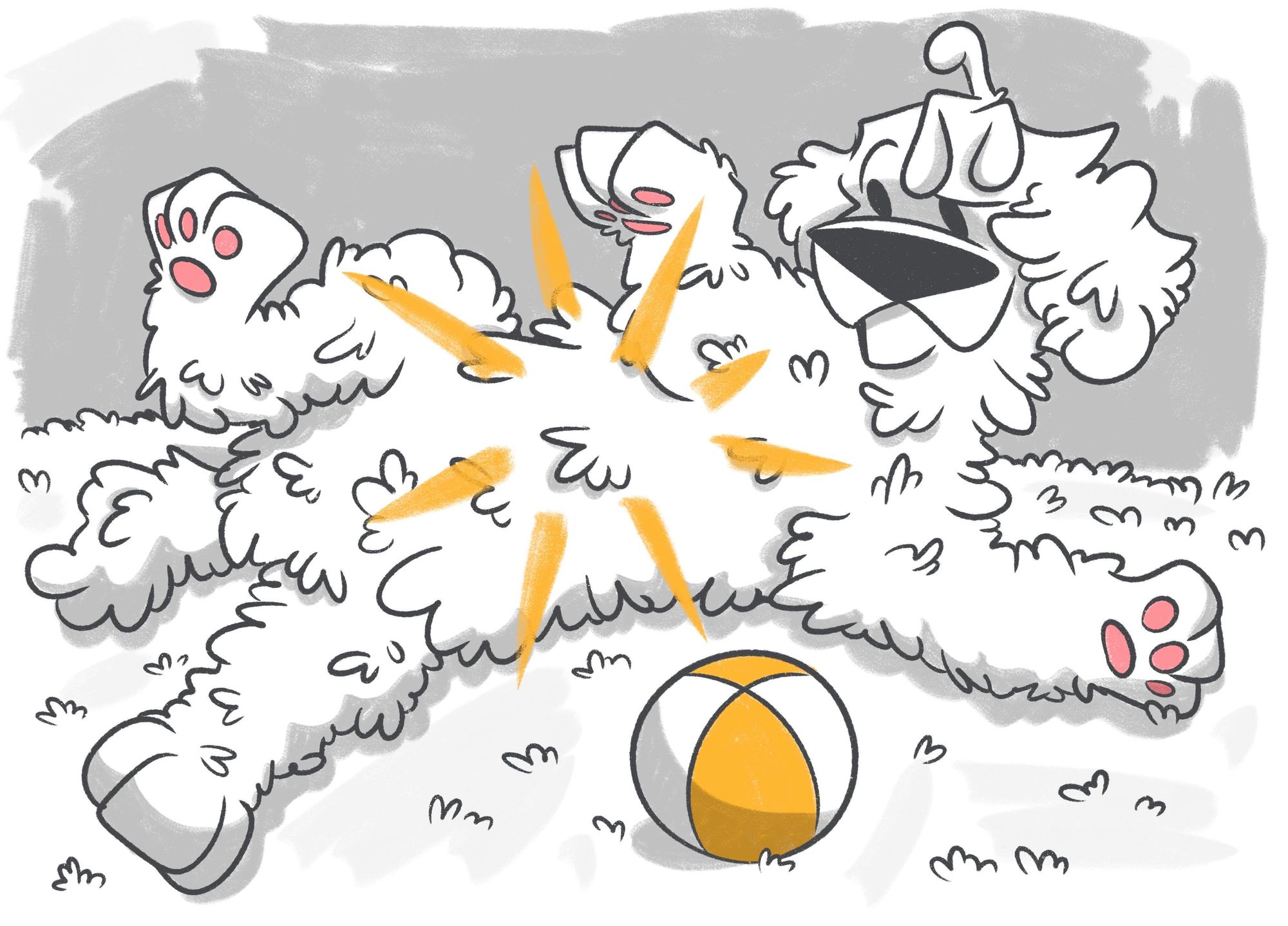Much like your own, your dog's stomach can make several strange sounds: gurgling, rumbling, and growling. Just like in humans, most of the time, there's a pretty good reason for this, and the cause is nothing to worry about.
The clinical term for dog tummy noises is borborygmi, which is about as onomatopoeic as it gets, sounding remarkably like the condition it describes.
Feeling a bit hungry, having eaten too much or too fast, or struggling to digest a meal can all cause a symphony in your dog's belly.
As a pawn, how do you know when the rumblings are something to worry about? What are these noises telling you, and when should you take them seriously?
Content:
- Causes of Stomach Gurgling in Dogs
- What Are the Symptoms of Bloat in Dogs
- What Should I Do If My Dog Stomach is Making Noises
- How Will My Vet Treat My Dog Stomach Gurgling
- FAQ
Causes of Stomach Gurgling in Dogs
The mechanics of digestion can cause various sounds to come from within your dog, usually as the food is churned up and moved through the gastrointestinal tract. But some factors can turn up the volume on these sounds and cause you to take note:
Stop Googling - Ask a Real Vet
-
The runs: if your dog has diarrhea, the extra gurgling and grumbling you'll hear are caused by the food and water that are now passing through the digestive system much faster. You'll usually hear an increase in stomach grumbles right before diarrhea hits.
-
Indigestion: dogs are fascinating beasts that somehow manage to eat things that they just shouldn't. The gastric distress that can result from chowing down on something that doesn't agree with them can be pretty noticeable in the sounds coming from your dog's belly.
-
Gas: look, there's no sugarcoating this. But gas making its way toward the exit can cause some interesting sounds before it even exits. Gas can result from eating a diet high in fiber, swallowing air, or from food sensitivity.
-
Parasites and bacteria: parasites can cause stomach noises when they set up shop in your dog's gut and either cause gas in the gut or produce their gas.
-
GI disorders: can cause a range of unpleasant gastrointestinal problems like gas and diarrhea that can cause increased stomach noises.
-
Bowel obstructions: can result when your dog consumes something they shouldn't have — a sock, bones, or sponges. These foreign bodies can become lodged in the intestines. The body then expels this foreign body by overproducing gas to dilate the intestines. This is not something you want to play around with, and if you suspect an obstruction, see your vet immediately.
What Are the Symptoms of Bloat in Dogs
Bloat in dogs is severe and requires treatment as quickly as possible. If left untreated, bloating can become life-threatening in a very short time.
When a dog's stomach fills with gas, it can begin to twist. Sometimes, this twisting can cause the blood supply to the gut to be cut off, preventing food and air from leaving. This can also impact nearby organs like the spleen and even essential veins and arteries.
In addition to causing your dog’s stomach to gurgle, the symptoms of bloat include a swollen and hard belly, unproductive heaving (i.e., no vomit is produced), drooling, a painful abdomen, restlessness, and panting.
How to prevent bloat in dogs:
- Give smaller meals more often;
- Use a slow feeder;
- Limit water after eating;
- Avoid intense exercise after eating.
If you suspect your dog has bloat, it is essential to get to a vet without delay.
What Should I Do If My Dog Stomach is Making Noises
A grumbling, growling stomach in dogs is not necessarily caused for concern, so it doesn't require any intervention. If, however, the grumbling is accompanied by any of the below symptoms, it may indicate something serious:
- Loss of appetite;
- Lethargy;
- Diarrhea;
- Vomiting;
- Drooling;
- Restlessness;
- Swollen belly;
- Signs of abdominal pain: a hunched posture.
If these symptoms are mild, general advice would be to give it 24 hours, and if it doesn't improve, seek veterinary care. If the symptoms worsen, it's best not to delay seeking treatment.
How Will My Vet Treat My Dog Stomach Gurgling

According to the MSD Manual study, unless other clinical symptoms accompany your dog's stomach gurgles, your vet might suggest the following things to try to reduce the noises:
- Smaller meals are given more frequently to limit more extended periods of hunger, which can lead to a noisy stomach.
- Make sure your dog has access to plenty of fresh water throughout the day. Water helps things move smoothly through the GI tract, thereby reducing the amount of noise there.
- If your dog is a gobbler, purchase a slow-feeder bowl. This will minimize the amount of air ingested by slowing your dog's frenzied feeding.
- Portion control is essential to maintaining a healthy weight and preventing your dog from overeating, which can cause some rumbling in the tummy.
- A post-meal walk can aid digestion and reduce the amount of noise created in the stomach by speeding up the breakdown of food and reducing the amount of time it stays in the stomach. The walk should be relaxed and gentle. Intense exercise after a meal can cause bloating and other digestive issues.
FAQ
Should I be concerned if my dog's stomach is making noises?
Generally, if dog stomach noises are serenading you, it doesn't necessarily cause panic. If any of these symptoms accompany the dog's tummy gurgling, you should contact your vet:
- Vomiting and heaving without vomiting for more than 24 hours;
- Severe diarrhea that persists for more than 24 hours;
- Food avoidance and lack of appetite;
- Lethargy and loss of energy.
Petcube's Emergency Fund is great for unexpected pup emergencies, especially with the online vet consultation. You can explain all your symptoms to a fully qualified, licensed, and trained vet and receive advice on what you should do next. If you don't need a vet appointment, you will be informed of that. Likewise, if you do.
For less than $1 per day, can you really afford not to have 24/7 vets at the touch of a button plus $3,000 worth of emergency pet care for up to six of your furry friends per year?
Preventing bloat in dogs: How long should a dog rest after eating?
If you are wondering how to prevent bloat in dogs, a good rule of thumb is to avoid exercise and activity for around two hours after eating. A gentle walk after eating can aid digestion, but vigorous activity, running, and jumping should be avoided as this can cause bloat in dogs.
My puppy is bloated but acting normally. Is this bad?

In puppies, bloat is common for several reasons. The leading cause of a big, round belly in puppies is worms, which can also come with other symptoms like a lack of energy. When getting a new puppy, the general advice is to take them to the vet as soon as you bring them home for a thorough health check.
The second reason your puppy is bloated is that these greedy little snuggle nuggets don't know when to stop chowing down. If your puppy is bloated but acting normal, it's usually because they've overeaten and their little tummy is too full. Pay attention to your pup when they eat; if they're eating too fast, this can cause bloat, so maybe invest in a slow feeder to slow the little tyke down.
What home remedy can I give my dogs for gas?
Home remedies for dogs with gas can include immediate interventions like a gentle tummy massage to free up trapped winds and a warm bath to get the intestines moving and help the gas pass.
Prevention is indeed always better than cure. For dogs with gas, look into their diet; a high-fiber diet can cause gassiness. Also, how fast is your dog eating? Gobbling down food can cause your dog to swallow a lot of air, leading to gas.
My dog's stomach is making noises, and he won't eat. What's wrong?
If your dog's stomach is making noises and he won't eat, it may be a sign of inflammatory bowel disease or parasites, especially if bouts of diarrhea accompany these symptoms.
Be on the lookout for other signs of bloat in dogs, which include a swollen belly and pain in the abdomen. If you suspect your dog may have bloat, contact your vet without delay.
Why does my dog have gas all of a sudden?
If your dog has bad gas all of a sudden, it’s more than likely a dietary issue. If something has changed in your pet’s diet, a newly introduced ingredient is likely proving hard to digest.
Other things that could be causing sudden gas in your dog include swallowing lots of air when they eat. This is usually because they’re wolfing down their food too fast.
If your dog’s sudden gas is accompanied by the following symptoms, it might likely be something more serious, and you’ll need to visit the vet:
- Diarrhea;
- Vomiting;
- Weight loss;
- Loss of appetite.
What does a normal puppy's belly look like?
A healthy puppy's belly should look smooth, clean, and slightly round. The roundness should form a gentle curve and may get rounder after meals. Lumps and bumps are a cause for concern as they could indicate a more serious issue.
Your puppy’s belly should not protrude too much, nor should it be showing any signs of pain or discomfort in the abdomen.
Was this article helpful?
Help us make our articles even better









